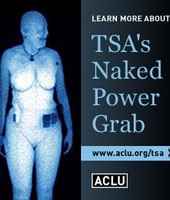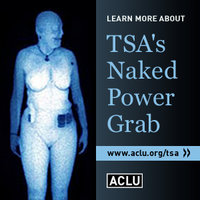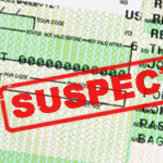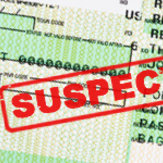Today, the ACLU of New Mexico joined a class action lawsuit against Espanola Public Schools for failing to protect middle and high school students from vicious and relentless bullying. The reports from students in Espanola secondary schools are shocking. Victims of bullying say that when they reported abuse to school administrators and police--time after time--they did nothing. This apparent apathy on the part of EPS employees has created a toxic and violent environment in which some students are physically assaulted and verbally harassed on a daily basis.
What makes the situation in Espanola secondary schools especially alarming is that several of the private security guards employed by EPS actually encourage and participate in this abusive behavior. Overwhelming evidence laid out in the compliant shows that private security guards ignored student-on-student violence, encouraged student brutality, and physically and sexually assaulted students.
You can watch video evidence of the violence epidemic in Espanola schools here. WARNING: These videos contain strong violence and language that some people may find disturbing.
The ACLU cannot stand idly by while government-run schools ignore and enable violence against students on their watch. Lack of hall and classroom supervision, failure to address reports of bullying and violence, and employment of private security guards who lack proper training and oversight has created an intolerable atmosphere of fear in Espanola secondary schools. Students have the right to receive an education in schools that are safe places to grow and learn. ACLU-NM is dedicated to making sure that students in Espanola once again enjoy that right.
Speak out at your school board meetings. Let your board members know that keeping schools safe places to learn is a priority. You elected your school board representatives; hold them accountable.
Learn techniques for dealing with bullies. You are not powerless against bullies. Here are some useful tips for dealing with bullies at school.
Form a student Gay/Straight Alliance. Some of the worst bullying in the schools is directed against LGBT students or straight students that are perceived to be gay. Helping to start at GSA at your school can help draw attention to issues that gay, lesbian, bisexual and transgender students face in the schools and can help promote a more tolerant and safe environment. Learn how to start a GSA club at your school.
More information on bullying and bullying prevention can be found at education.com.
What makes the situation in Espanola secondary schools especially alarming is that several of the private security guards employed by EPS actually encourage and participate in this abusive behavior. Overwhelming evidence laid out in the compliant shows that private security guards ignored student-on-student violence, encouraged student brutality, and physically and sexually assaulted students.
You can watch video evidence of the violence epidemic in Espanola schools here. WARNING: These videos contain strong violence and language that some people may find disturbing.
The ACLU cannot stand idly by while government-run schools ignore and enable violence against students on their watch. Lack of hall and classroom supervision, failure to address reports of bullying and violence, and employment of private security guards who lack proper training and oversight has created an intolerable atmosphere of fear in Espanola secondary schools. Students have the right to receive an education in schools that are safe places to grow and learn. ACLU-NM is dedicated to making sure that students in Espanola once again enjoy that right.
What can you do to help prevent bullying in your school district?
Parents and community members can:
Participate in your school PTA meetings. One of the best ways to prevent a culture of bullying from taking root in your school district is for parents and other citizens to be engaged in the educational process. When parents and other community members are involved, it is harder for teachers and school administrators to ignore bullying at school.Speak out at your school board meetings. Let your board members know that keeping schools safe places to learn is a priority. You elected your school board representatives; hold them accountable.
Students can:
Tell your teachers or your parents if you are a victim of bullying! The bullying wont stop unless you let people know about it. Most of the time, school teachers and administrators will act quickly to stop the bullying, but they need to know about it first. Your parents may be able to help you determine the best way to go about this.Learn techniques for dealing with bullies. You are not powerless against bullies. Here are some useful tips for dealing with bullies at school.
Form a student Gay/Straight Alliance. Some of the worst bullying in the schools is directed against LGBT students or straight students that are perceived to be gay. Helping to start at GSA at your school can help draw attention to issues that gay, lesbian, bisexual and transgender students face in the schools and can help promote a more tolerant and safe environment. Learn how to start a GSA club at your school.
More information on bullying and bullying prevention can be found at education.com.
Date
Wednesday, December 1, 2010 - 9:37amFeatured image

Show featured image
Hide banner image
Tweet Text
Related issues
Show related content
Menu parent dynamic listing
Style
Standard with sidebar



